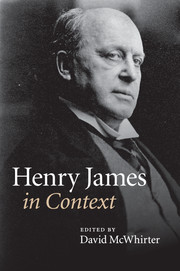Book contents
- Frontmatter
- Contents
- List of Illustrations
- Notes on Contributors
- Preface
- Abbreviations
- Chronology
- Part One Life and career, times and places
- Part Two Historical and cultural contexts
- Chapter 9 Aestheticism and Decadence
- Chapter 10 Authorship
- Chapter 11 Children
- Chapter 12 Consumer culture
- Chapter 13 Cosmopolitanism
- Chapter 14 Courtship, marriage, family
- Chapter 15 Ethics
- Chapter 16 Language
- Chapter 17 Law
- Chapter 18 Manners
- Chapter 19 Media and communication technologies
- Chapter 20 Modernism
- Chapter 21 Money and class
- Chapter 22 Museums and exhibitions
- Chapter 23 Nationalism and imperialism
- Chapter 24 Print culture
- Chapter 25 Psychology
- Chapter 26 Race
- Chapter 27 Realism and naturalism
- Chapter 28 Sexualities and sexology
- Chapter 29 Social sciences and the disciplines
- Chapter 30 Things
- Chapter 31 Time
- Chapter 32 Travel and tourism
- Chapter 33 Urbanity
- Chapter 34 Visual culture
- Chapter 35 Women and men
- Chapter 36 Work
- Part Three Reception
- Further reading
- Index
- References
Chapter 13 - Cosmopolitanism
Published online by Cambridge University Press: 05 August 2014
- Frontmatter
- Contents
- List of Illustrations
- Notes on Contributors
- Preface
- Abbreviations
- Chronology
- Part One Life and career, times and places
- Part Two Historical and cultural contexts
- Chapter 9 Aestheticism and Decadence
- Chapter 10 Authorship
- Chapter 11 Children
- Chapter 12 Consumer culture
- Chapter 13 Cosmopolitanism
- Chapter 14 Courtship, marriage, family
- Chapter 15 Ethics
- Chapter 16 Language
- Chapter 17 Law
- Chapter 18 Manners
- Chapter 19 Media and communication technologies
- Chapter 20 Modernism
- Chapter 21 Money and class
- Chapter 22 Museums and exhibitions
- Chapter 23 Nationalism and imperialism
- Chapter 24 Print culture
- Chapter 25 Psychology
- Chapter 26 Race
- Chapter 27 Realism and naturalism
- Chapter 28 Sexualities and sexology
- Chapter 29 Social sciences and the disciplines
- Chapter 30 Things
- Chapter 31 Time
- Chapter 32 Travel and tourism
- Chapter 33 Urbanity
- Chapter 34 Visual culture
- Chapter 35 Women and men
- Chapter 36 Work
- Part Three Reception
- Further reading
- Index
- References
Summary
Henry James is difficult to locate. That is to say, he exists in the library, in the databases, in the critical literature, under many locations. There is the American Henry James, the European Henry James and the international Henry James. In 2003 the Henry James Review devoted a special issue to ‘Global James’. We append categories to his work, calling some ‘the New York stories’ or ‘the American essays’, and more always remains to be said about his ‘international theme’. Early critics often presumed that James turned his back on America, while contemporary scholars wonder about his late-career concern with the land of his birth, as evidenced in The American Scene. All along, we wonder, how and where does James matter?
On the other hand, I want to argue, the difficulty of attempting to locate James, or to place him in relation to a national context is precisely the point, and one of the reasons why we continue to read and reread him today. That is, James’s writings participate in the development of notions of cosmopolitanism, within both the US and Europe, that remain influential today, and that undergird contemporary discussions of national culture, cosmopolitanism and globalization. Without wrenching James from his era or trying to claim that he was somehow prescient about the twenty-first century (or for that matter, about the twentieth), I want to argue that the versions of cosmopolitanism James presents in his essay ‘Occasional Paris’, his short stories from the nineties, such as ‘Collaboration’ and ‘Greville Fane’, as well as in other late writings, such as The American Scene, represent a complex response to the possibilities and limitations of cosmopolitanism at the turn of the twentieth century. James was concerned with the expansiveness of American commercialism, the jingoism of its political posturing and with the threat of warfare, and sought to mitigate its effects by espousing a practical cosmopolitanism opposed to imperial and commercial swagger and often deeply connected to ideals of femininity. On the other hand, his work constantly exposes the lack of connection to culture and the problematic rootlessness among many cosmopolitans in Europe, and highlights the danger it posed to both women and men.
Information
- Type
- Chapter
- Information
- Henry James in Context , pp. 138 - 149Publisher: Cambridge University PressPrint publication year: 2010
References
Accessibility standard: Unknown
Why this information is here
This section outlines the accessibility features of this content - including support for screen readers, full keyboard navigation and high-contrast display options. This may not be relevant for you.Accessibility Information
- 1
- Cited by
